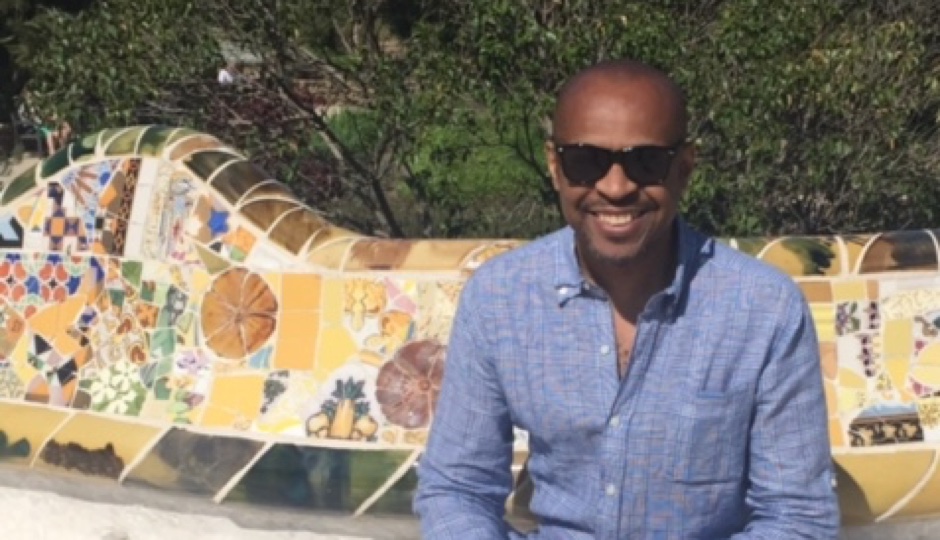LGBTQ&A: Reggie Shuford

Reggie Shuford, Esq.
Reggie Shuford, Esq., is the executive director of the American Civil Liberties Union of Pennsylvania. We chatted with the civil rights leader on working for social justice for LGBTQ individuals statewide and what we can do in the Gayborhood to combat racial discrimination.
Tell us a little about yourself.
I grew up in Wilmington, North Carolina, and started school in the early 1970s, just after integration was taking effect and after much resistance to it. Racial tensions were palpable. I was the third of five children raised by a single mother who worked as a domestic to supplement the meager monthly income from welfare. When I was six, I decided I wanted to become an attorney, after having been told by a number of people that my highly inquisitive ways made me sound like a lawyer. Based upon my experiences growing up poor and black in the residentially segregated South, I later decided to become a civil rights attorney.
In the mid-’80s, I was the first black person to graduate from my high school, Cape Fear Academy, which was founded primarily so that white parents could avoid sending their children to integrated public schools. I graduated as salutatorian, and during my graduation speech there were racist catcalls from a few guys who had graduated a few years earlier. When I graduated from Cape Fear Academy, I was the first high school graduate in my family in a few generations.
I attended UNC-Chapel Hill, where I received both my undergraduate and law degrees. After graduation from law school, I did a judicial clerkship with Justice Henry Frye, who was both the first black justice and first black chief justice on the Supreme Court of North Carolina. After being in private practice for almost three years, specializing in education law, I moved to New York City in 1995 to work as an attorney at the national ACLU. I was there for 15 years, until 2010, when I moved to Oakland to work for a racial-justice nonprofit. After a year-and-a-half, I returned to the East Coast to become executive director of the ACLU of Pennsylvania, where I have been since September 2011.
My job is pretty high profile, but I tend to be a fairly private person, a bit on the shy side.
You have worked in social justice and civil rights for years. What inspires you every day?
I’m inspired by my vision of a truly equal and just world. My childhood informs that vision, as well as what I now do for a living. As someone who was bullied and who witnessed and experienced prejudice, I have a visceral reaction and deep sensitivity to bigotry of any kind. I abhor racism, sexism, misogyny, homophobia, xenophobia, classism, Islamophobia, anti-Semitism – you name it. Understandably, I hold in very low regard anyone who would support, condone, enable, ignore, deny, or turn a blind eye to any of those things.
I believe that it is every person’s birthright to live his or her authentic self, quietly or boldly, unapologetically and free of interference from government entities and private citizens.
You’re currently the executive director of ACLU of Pennsylvania. What are some of the major statewide LGBTQ issues the organization is addressing right now?
We are working with allies to pass legislation in Pennsylvania that would protect members of the LGBTQ community from discrimination in employment, housing, and public accommodations.
We also are working to protect the rights of transgender individuals by becoming a more trans-competent and trans-affirming organization; to build relationships with trans people across the state and identify opportunities to strengthen organizational coalition relationships; to support leadership of transgender communities by developing programming that builds participants’ communications, advocacy, and lobbying skills; to engage in public education, strategic communications, and direct advocacy and lobbying to defend against anti-transgender policies and pave the way for advancing transgender rights in the state.
We are working to protect the rights of LGBTQ students by assisting individual students and groups fight against discrimination, and by advising school districts of their legal obligations. We work to promote school policies that prevent bullying and discrimination, as well as laws protecting student expression.
The Philadelphia Commission on Human Relations (PCHR) just released the transcript of its October 25th public hearing on Gayborhood racism. After attending that event, what are some immediate pieces of advice you would give to community members who feel they have been racially discriminated against?
It depends on the nature of the discrimination. They might contact the PCHR; housing organizations and attorneys if they believe themselves to be the victims of housing discrimination; the Equal Employment Opportunity Commission or employment lawyers in the event of employment discrimination; and/or lawyers who specialize in LGBT issues if the discrimination involves public accommodations.
What are three major civil rights causes you hope Philadelphia improves upon in 2017?
1. An end to stop-and-frisk policing.
2. Better funding for public schools.
3. Continue to be a “Fourth Amendment” or “sanctuary city.”


